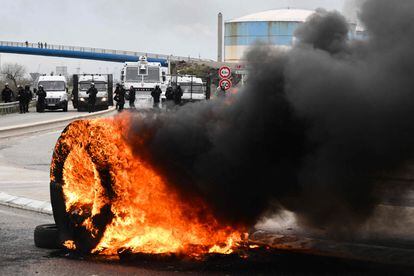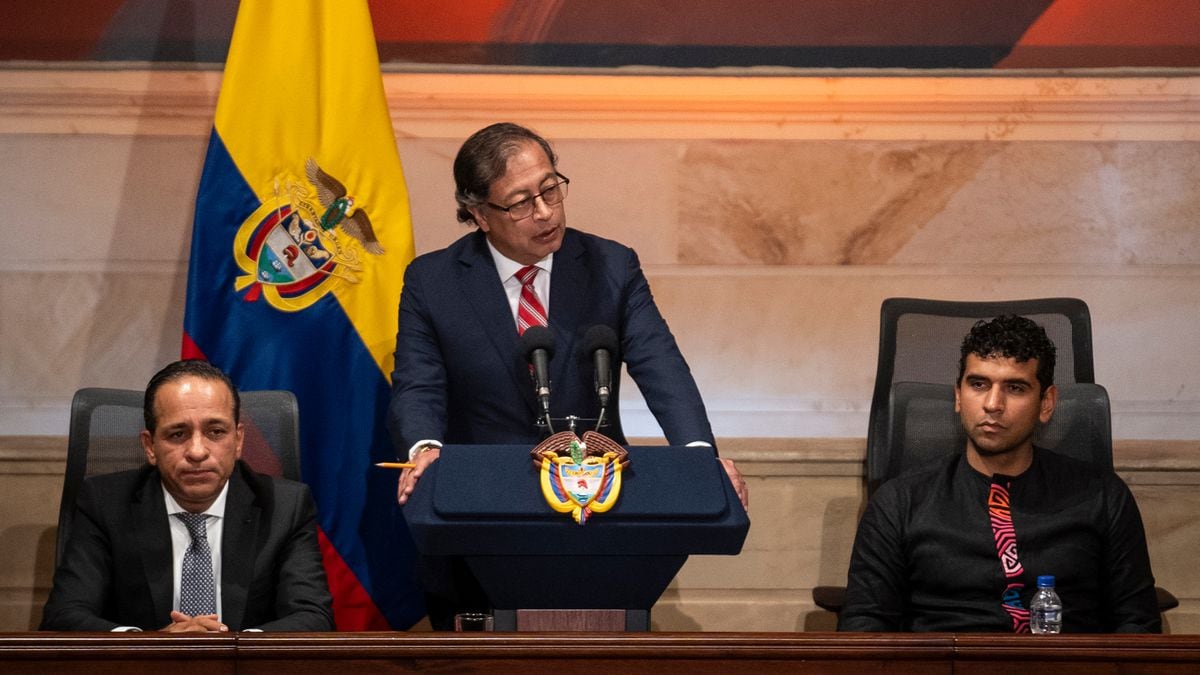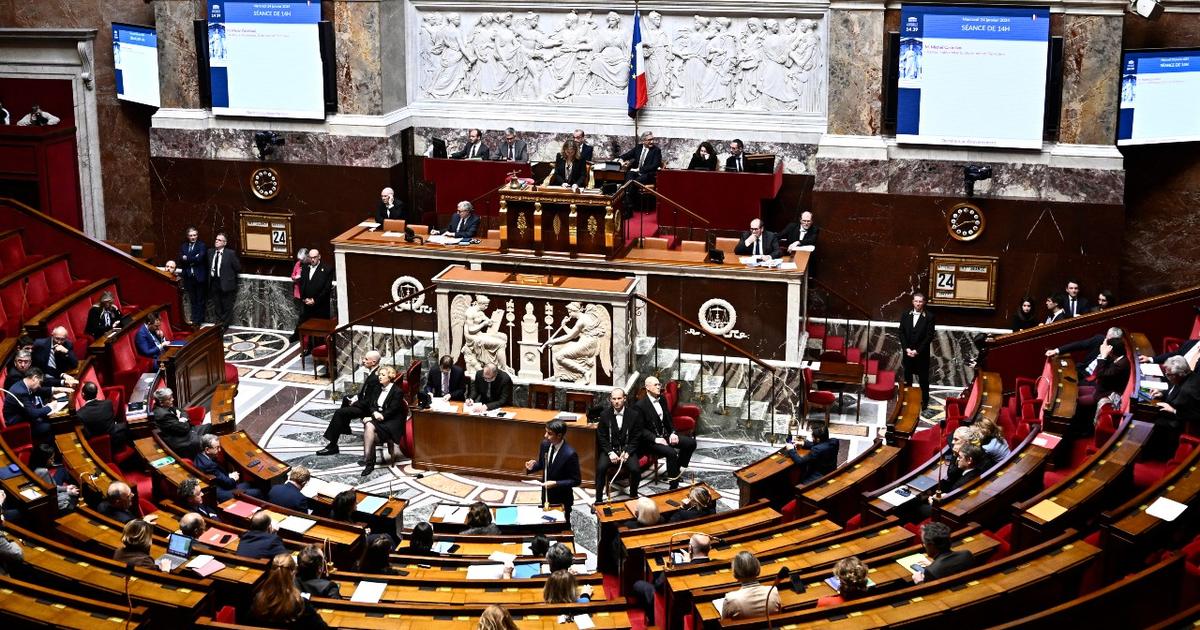It is not the concession that French unions and the opposition expected from Emmanuel Macron, but for the first time since protests began against the contested pension reform, the French president has backed down.
Macron has decided this Friday to postpone the visit to France of King Carlos III, initially scheduled from March 26 to 29, due to the massive mobilizations and strikes that have placed the country on the brink of political and social crisis.
A Downing Street spokesman confirmed that the decision "has been made by mutual agreement, after the French president asked the British government to postpone the visit."
"This state visit will be rescheduled in the most appropriate terms," said the Élysée Palace.
The new date, in principle before the summer, will allow France "to welcome the Majesty of her King Carlos III in the conditions that correspond to [the] friendship relationship [between both countries]."
"Their Majesties of hers look forward to another opportunity to visit France, as soon as new dates can be agreed," Buckingham Palace announced in a brief statement.
The first state trip of Carlos III since September replaced his deceased mother on the throne will maintain its second part.
The monarch and his consort will travel to the German capital, Berlin, as planned after their visit to France.
The British Royal House has wanted the assessment and the decision to be announced in advance by the French Government, although it justifies the surprising announcement in "the situation" that the country is experiencing.
The visit to France would have coincided with a new national day of demonstrations and strikes, called for Tuesday, March 28, the tenth since the Government presented the law in January that will increase the retirement age from 62 to 64 years.
On Thursday, the demonstrations ended with incidents in Paris and other French cities, including Bordeaux, which together with the French capital was to be the destination for the UK head of state to visit France.
At a press conference in Brussels, where he was attending the European Council, Macron explained that in the morning he had spoken by phone with Carlos III and pointed out the union call on the 28th as the reason for the decision.
"Common sense and friendship lead us to propose a postponement," he justified.
"What would have been abhorrent to the British people and to ourselves would have been if we had done business as usual and incidents on top of it."
Charles III's agenda included a dinner at the Palace of Versailles, associated with the absolutist King Louis XIV.
Images of royal splendor and pomp in full protest against Macron and amid accusations of behaving like a republican king could have done him a disservice.
The postponement underlines the true dimension of the current crisis in France, a country that, with this decision, assumes that it is incapable of organizing a state visit of this type and at the present time.
Tires burn outside a refinery in Fos-sur-Mer, southeastern France, during a protest over Macron's controversial pension law, this Friday. CHRISTOPHE SIMON (AFP)
Mélenchon: “popular censorship”
Popular pressure, so far, has not achieved any of its objectives.
Neither Macron has withdrawn the law, nor has he called a referendum, nor has he considered calling new legislative elections, he has not even relieved his prime minister, Élisabeth Borne, nor has the government changed.
Now, at least, the streets will be able to display the small victory, not directly sought, by having altered the president's international agenda.
"The meeting of the kings in Versailles, dispersed by popular censorship", celebrated on the social network Twitter Jean-Luc Mélenchon, leader of La Francia Insumisa, the first party of the left in France.
Mélenchon considers that, after the failure of two motions of censure against the Government on Monday in the National Assembly, the time for "popular censorship" has come.
The massive protests on Thursday, with more than a million demonstrators across France, show that the movement against pension reform is not faltering.
Although the law has already been approved, it is pending the approval of the Constitutional Court.
The success of the peaceful marches called by unions has been marred by clashes between protesters and police and assaults and fires on public buildings such as the Bordeaux City Hall.
Since Macron last week opted to adopt the reform by circumventing a vote in the National Assembly, the protests have taken on a violent turn that worries unions.
"Everyone is restless this morning, because there has been violence that is unacceptable," Laurent Berger, general secretary of the moderate CFDT union, the first in France, told the RTL radio station.
"You have to calm down the game, now, before there is a drama."
Interior Minister Gérald Darmanin explained that 441 police officers and gendarmes were injured on Thursday.
Darmanin has implicated what he calls the "extreme left" in radicalizing the movement.
“We will not give in to violence,” Macron declared in Brussels.
For their part, several protesters denounced attacks by the police these days.
In a recording obtained by the newspaper
Le Monde
and the
Loopsider
outlet , a group of policemen threaten and intimidate seven young men arrested on Monday and what appears to be two slaps from the officers to one of them is heard.
The general inspectorate of the national police — the so-called “policemen's police” — has already opened 11 investigations into alleged police abuses in the past week, according to Darmanin.
In a statement, the Council of Europe's human rights commissioner, Dunja Mijatović, has warned the French government: "Sporadic acts of violence by some protesters and other reprehensible acts committed by other people in the course of a demonstration do not justify the excessive use of force by State agents”.
Follow all the international information on
and
, or in
our weekly newsletter
.
Subscribe to continue reading
Read without limits
Keep reading
I'm already a subscriber









